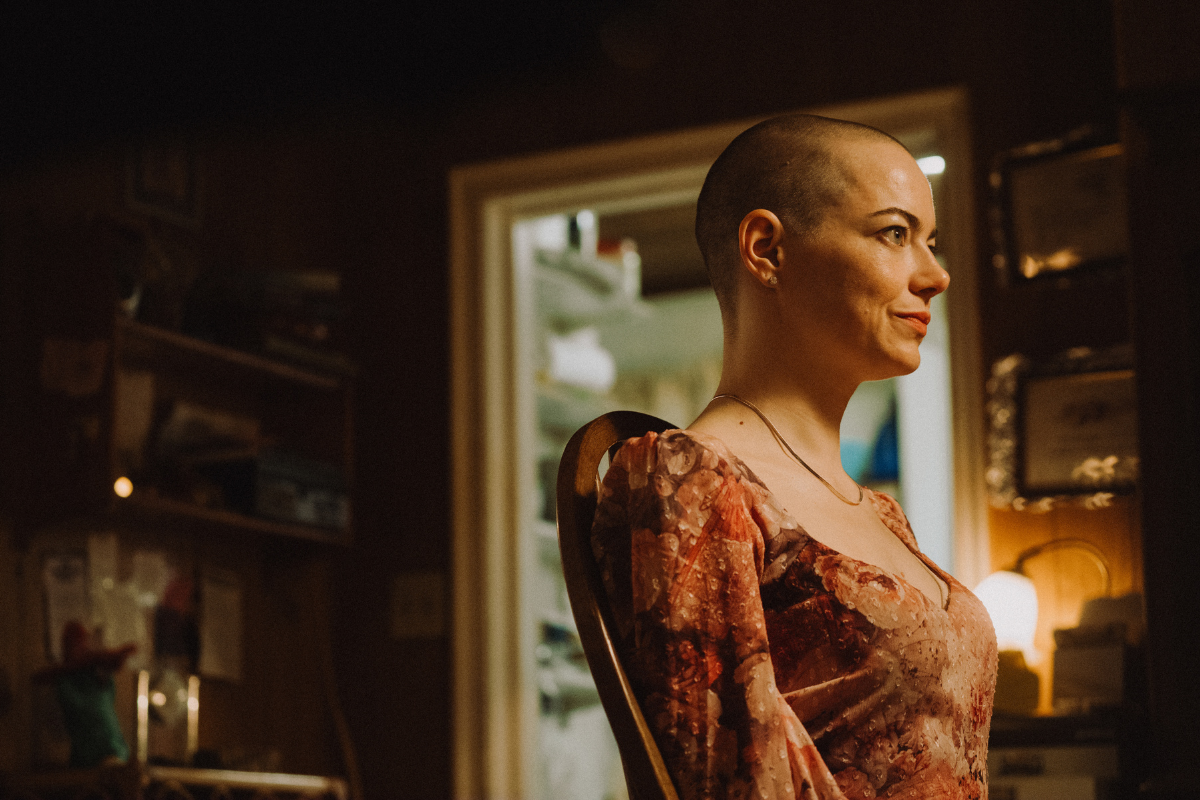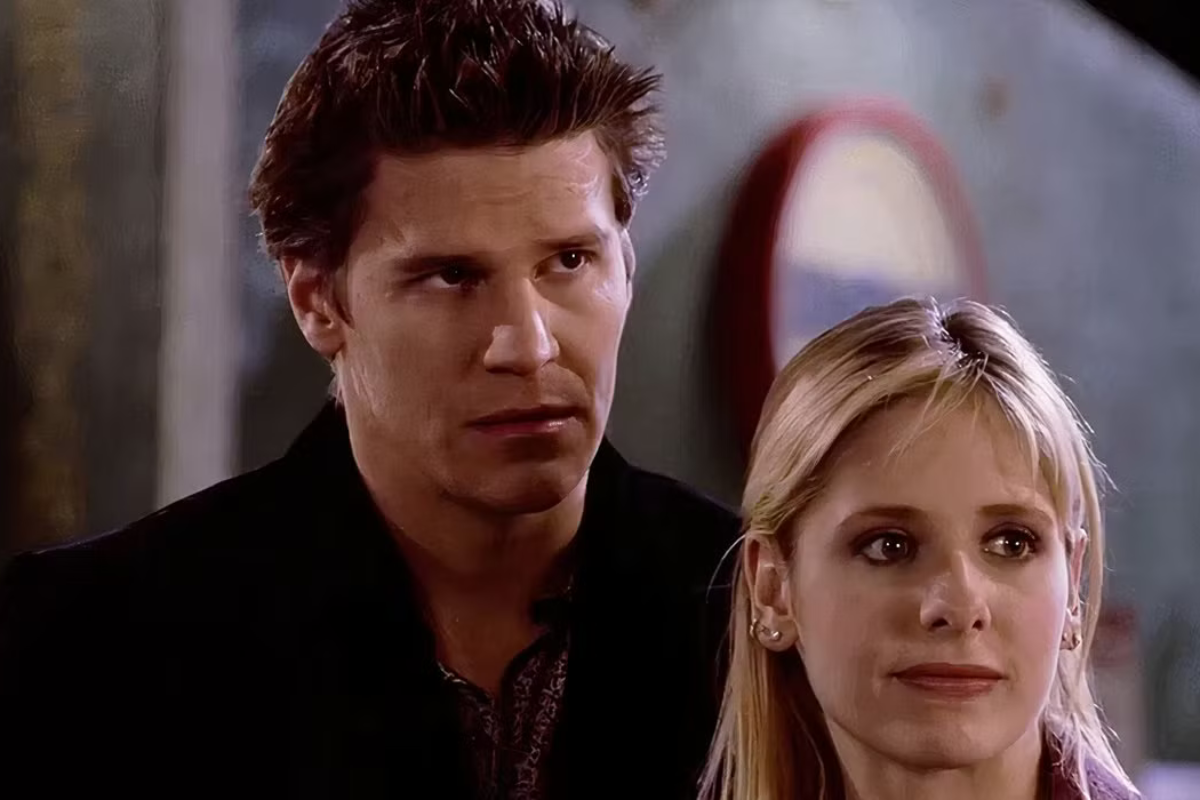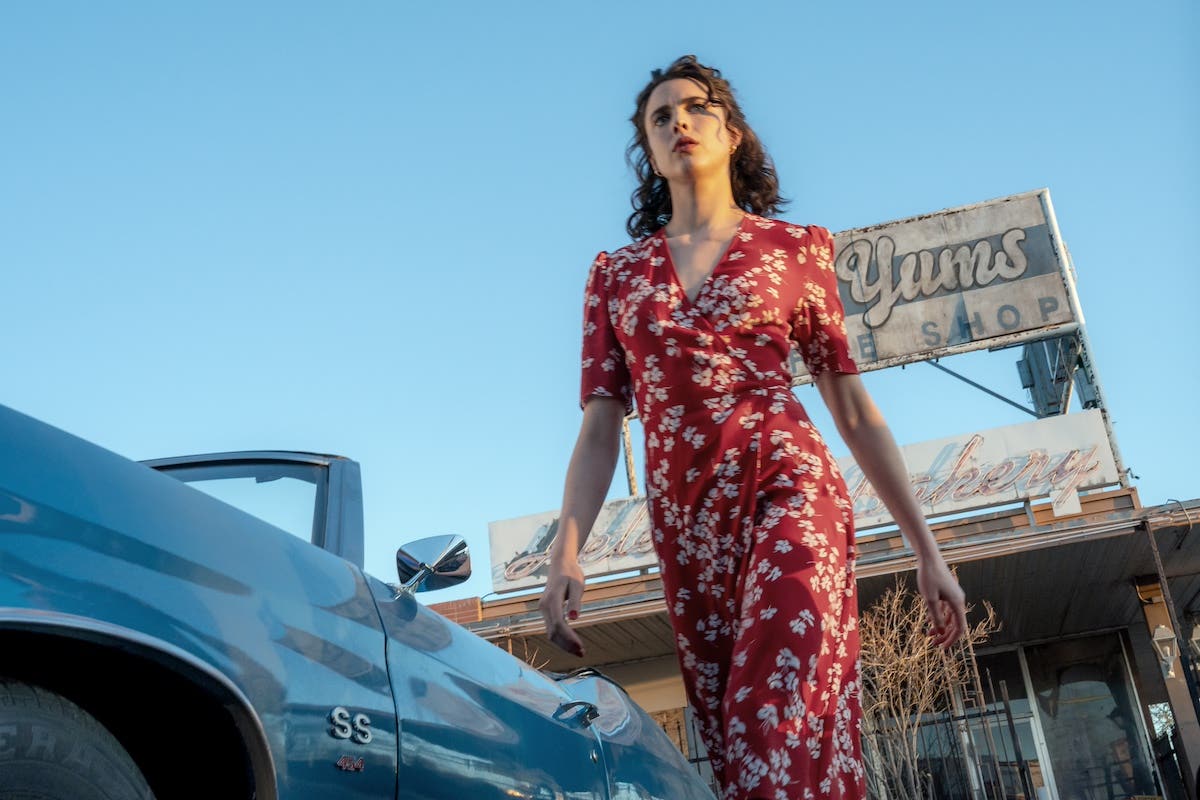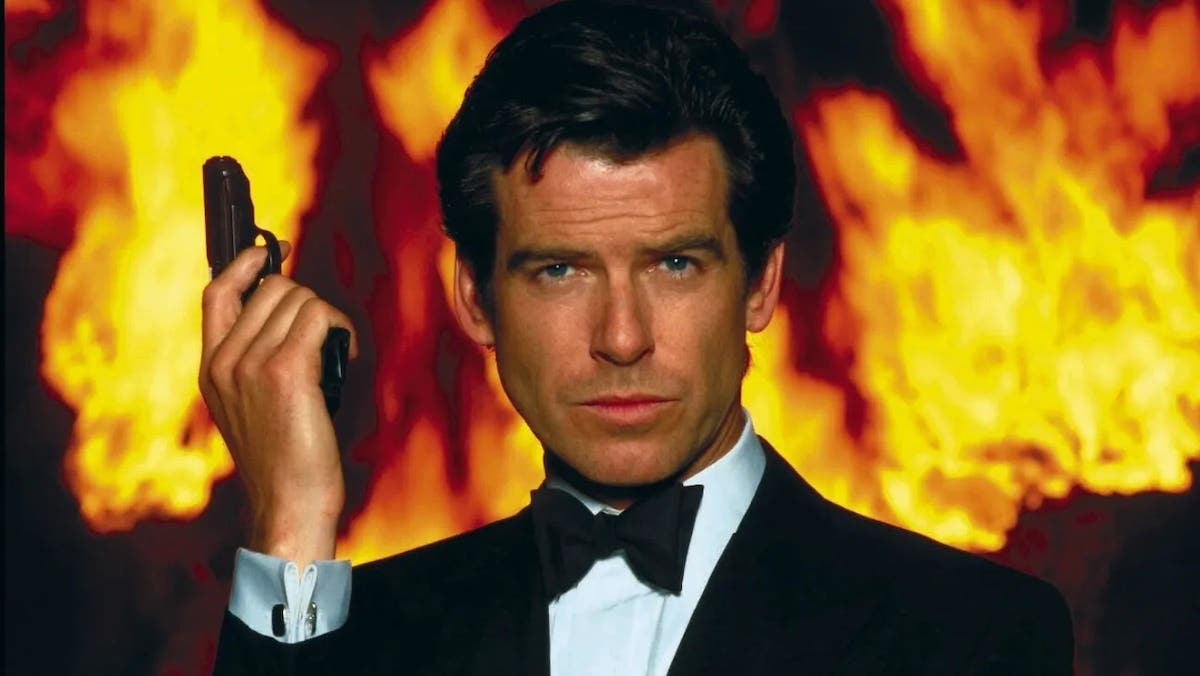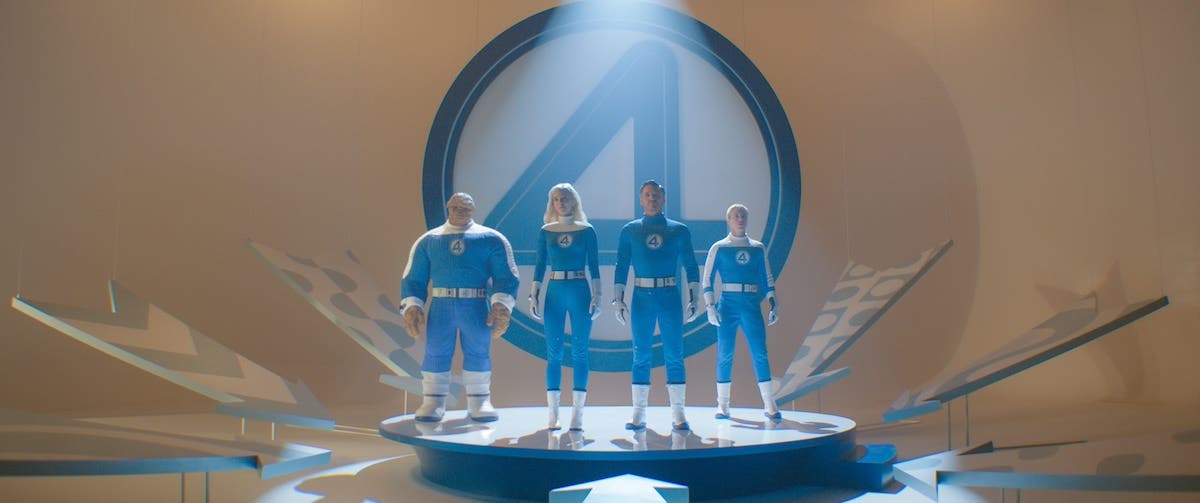Legally Speaking It Depends: HASHTAG – Short Film Case Study
Following from my last column on short filmmaking, I thought that taking a closer look behind the scenes and into the minds of the filmmakers of a short film currently…
Following from my last column on short filmmaking, I thought that taking a closer look behind the scenes and into the minds of the filmmakers of a short film currently ramping up for fundraising and production would give some insight to the concepts covered.
HASHTAG is a science-fiction short drama co-written and directed by Ben Alpi (Cowboy Creed, Silver Lining), starring Gigi Edgley (Farscape, Jim Henson's Creature Shop Challenge, Rescue Special Ops) and produced by Runic Films. As described in its currently running Kickstarter campaign the film is
“A thought-provoking science fiction short film that examines a future where social media dominates every moment of our lives.”
I interrupted the filmmakers busy crowdfunding activities just long enough to ask a few questions. Ben and Gigi were kind enough to share their experiences.
1) Short Film Production
Q: Having successfully created the Kickstarted short film Cowboy Creed, what have you learned from that production that you are taking into this attempt for Hashtag? Things you'd do differently? Things you wouldn't do again?
BA: To be totally honest, we learned that we needed more funding! [laughs] We knew what our costs for Cowboy Creed would be but being newcomers to Kickstarter at the time, we opted to set a goal that we felt was achievable even though it didn’t include the whole budget. Luckily we had an additional donor and a very nice postproduction staff willing to work with us on pricing. What we had to make up for in the end was all the festival submission fees and the cost of rewards; all of which came out-of-pocket.
For our Hashtag Kickstarter running now, our goal, minus nearly $8000 for Kickstarter and credit card transaction fees, is still the bare minimum of what we need given all we have to afford. An original science-fiction film is perhaps the most expense genre since you have to build everything from scratch. There isn't a set we can walk onto, props we can rent, or costumes we can modify. But this is a story that needs telling now.
Q:For the readers who are considering their own short film project, how would you advise them to prepare for the tasks ahead?
BA: Don't settle and don't slack. Even though Hashtag is a short film, I strive for feature film quality and to this point, we’ve managed to achieve that. Also, you have to do your homework with breakdowns, storyboards, and shot lists because in indie film, you just don't have time for ambiguity. Especially with digital, it can be tempting to go in loose, but I don’t recommend it. I have heard too many horror stories!
Q:Collaboration is key. You are returning to the fore with several members of your Cowboy Creed team. Any advice in how to approach working with others to achieve your goals that maintains a relationship that you want to continue?
BA: I think it boils down to we’re all in this together, and we don’t work in a vacuum. I like to say that film is one of the greatest collaborative efforts of our time. Everyone has an instrumental role to play from the director to the production assistants. The help I get from each person is essential for the team to succeed. I was very lucky to have such great professionals on Cowboy Creed and when you find a team that works, you stick with them. I’m really glad to be getting the band back together for Hashtag.
Q: Bringing on new members can be difficult, especially when they're being added to a team that has already gone through the social adjustments on a previous project. What decisions lead to the choices of the new members and what approaches are you taking to ease them into the fold?
BA: Short films are a bit of an oddity because they often shoot for only a few days. It's really hard to get into a groove with so little time. Also with such a short shoot, you have to be careful who you bring in. I work a lot on personal recommendations, as do many others. And, without a big budget, it can be tough to meet with staff, but it's crucial.
2) Writing
Q: Hashtag is a co-writing project. What were the deciding factors in going at this one as a team and how do your approaches differ from the projects you each have worked on individually?
BA: I had been tinkering with a short screenplay called 1000 Miles for literally years. It was such a compelling story to me and I loved so much about it, but I couldn't get it under 23 pages. It really was becoming a feature and my main objective was about making a short so, I asked my good friend Kevin Rubio to critique it. He gave an excellent critique so, I asked if he would be interested in rewriting the story. What Kevin came back with was brilliant, much more focused -- and shorter! We volleyed ideas back and forth and got it quite streamlined, and I did a final polish which I'm really happy with. All those ideas for a feature still exist, but this short script is bang on.
Q:Genre is a strange beast. It is somewhat easier to market, but, so much harder to execute well. Coming from the cowboy genre how are you approaching the sci-fi genre? Any learned lessons you think will apply? Anything you think will be completely new?
BA: I've been working in genre for over 10 years now and have years of experience as a visual effects artist but of course, every production has its lessons. We planned for as much as we could on Cowboy Creed, but for instance, working with animals took a bit longer than we thought. Fight scenes are also very time consuming. For the climactic fight between John Carrigan's "Limey" and Kendall Wells' "Phineas" we had originally planned to shoot nearly an entire day, but in the end had to cut down the number of shots to fit our budget.
For Hashtag, we're going to build sets because we know that making this film as beautiful as it can be, shooting on green screen could take away not only from performances, but can simply feel off. It also adds a colossal amount of visual effects work in the end. No matter how well the green screen is lit, there is still so much work that goes into fixing it and in putting your actors in a photo real space. For this film, it may look like a lot of money up front, but practical sets will likely save us time and post-production dollars.
3) Acting
Q:How was Gigi Edgley chosen to be considered for the lead role? Any tips on how to approach actors producers may have in mind for playing in a short film project?
How did Peter Jackson ask artist Alan Lee to work on the Lord of the Rings series? He sent him his films with a letter. Actors are a bit different, but that's essentially how I approached Gigi. My wife Jyotika, the producer of Hashtag, encouraged me to speak to Gigi at Dragon Con in Atlanta. “X”, the lead character in the film, was originally going to be played by a man, but Jyotika, a strong female character herself, has always wondered if he could be played by a woman instead. One of my goals has always been to create female leading characters but with previous drafts of the script, it just didn’t work. Once I saw Kevin Rubio’s first draft, I knew it would be possible to switch the genders. Gigi then seemed a natural fit.
Q: What attracted you to the role of X? What about the writing drew you to it and how much of the character were you able to discern from the page?
GE:Hashtag is a brilliant script. It is extremely relevant in today's day and age. I am absolutely fascinated by the character X. She has an intriguing tale to tell. It is so rare that you come across a script that completely infatuates you. So I am very pleased to be involved with this wonderful production. I am also really excited about the idea of working with the backers on Kickstarter. It really is a very special journey joining forces with people all over the world to bring Hashtag to the big screens together.
Q:You have an extensive and impressive television resume. How differently do you approach short film roles? What is your preparation process and what would you like to see from a production to assist in that preparation?
GE: I completely explore my characters. I research every inch of them. I find clues in the script that allow me into the character's body, mind, heart and soul. It is vital that everyone is passionate about the story we are telling. We are very blessed to work in the entertainment industry. It is our job to tell people sensational stories and to commit to them entirely.
4) Kickstarter
Q:Getting a short film funded through Kickstarter appears to require a sort of alchemy to get all the right pieces in place. You have successfully done that once. Any advice for a producer considering crowdfunding? Things to do? Things to avoid?
BA: There are several blogs which cover this quite well, actually. Mostly, I'd say it's more work than you can possibly imagine before you start. Best thing to do is start early and become part of the community. I think films and other creative works are actually the toughest to get funded because it's much more than a product. Crowdfunded hardware products like the Pebble watch or Occulus Rift are really easy to visualize. Films, for one, have far more parts and pieces so creating an image in your mind of all it will entail isn't really the same as a 3D rendering of a watch. And we don't want to give away the ending!
5) Marketing
Q:The market for short films is constantly changing. How have things changed from when you started with planning Cowboy Creed to today and how do you adjust your production to accommodate the changes that may still come before you can release Hashtag?
BA: I think any creative property is finding it harder and harder to get sales. For some reason it seems that many folks view films, books, music, as something they should be able to consume for free, then discard for the next thing. It's like all the fears of TV eating your brain last century are becoming true but in far worse ways! The best thing still seems to be to make a great film and submit it to as many quality film festivals as you can. Film is still, in my opinion, one of the highest art forms because it incorporates every other art and discipline into it. Films do still change minds and broaden horizons, we just have to continue to find our audience.
Q: Hashtag is definitely science-fiction. How are you using that to your advantage in your marketing plans? Festivals? Conventions? Unexpected ways? What would you advise readers who may be considering a similar production path to pursue? What to avoid?
BA: There is still a bit of a stigma against science-fiction although, with modern special and visual effects, movie goers are more likely to pay to see the spectacle than previously. But many of these recent films trade story for explosions and fast-paced editing. So, it’s a blessing and a curse. You’re The Twilight Zone-style films, like Hashtag, are really about us as humans and our drive to understand ourselves and the universe around us. It’s heady stuff!
I love science-fiction because it explores the unknown in a way that can be exciting and frightening. It allows us to examine subjects in new ways that can unlock our imaginations from whatever preconceptions we might have. It's an amazing genre we've been given and I hope our film connects with people in ways they don't expect.
6) Anything else
Q:Anything else that you'd like to convey to the readers who have similar aspirations to yours?
BA:Go for it!
And with that I let them get back to their crowdfunding campaign. There are still a few days left in the drive so if this interview has intrigued you check out the Hashtag – Short Film campaign on Kickstarter. Personally, I was quite happy with the results I got from supporting Cowboy Creed's campaign and have already supported Hashtag. Will it be as successful, or more?
As always on these pages, it depends!
- More articles by Christopher Schiller
- Balls of Steel: Collaboration - The Walk of Shame
- Legally Speaking, It Depends: Crowdfunding Legal and Business Issues
Get Your On Demand Webinar Now on Producing Your Own Film!
Christopher Schiller is a NY transactional entertainment attorney who counts many independent filmmakers and writers among his diverse client base. He has an extensive personal history in production and screenwriting experience which benefits him in translating between “legalese” and the language of the creatives. The material he provides here is extremely general in application and therefore should never be taken as legal advice for a specific need. Always consult a knowledgeable attorney for your own legal issues. Because, legally speaking, it depends... always on the particular specifics in each case. Follow Chris on Twitter @chrisschiller or through his website.



